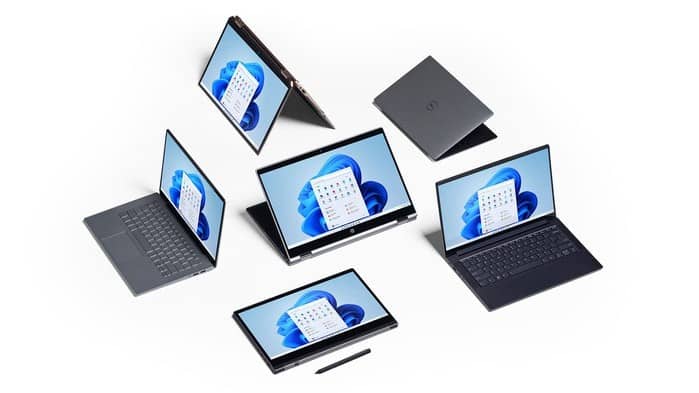This article was originally published on Fool.com. All figures quoted in US dollars unless otherwise stated.
Microsoft (NASDAQ: MSFT) recently introduced Windows 11, which will be offered as a free upgrade for Windows 10 users later this year. That announcement likely surprised some investors, since Microsoft had previously called Windows 10 its "last version" of Windows. That statement was based on the transformation of Windows into a cloud-based service that could be continuously updated online and monetized through its app store. Windows 11, though bearing a new name, really just marks a continuation of that strategy. Let's see what this new OS means for Microsoft's investors.The business of Windows
Windows is Microsoft's most well-known product, but the tech giant only generated 14% of its revenue from its Windows division last quarter. This segment houses its OEM and enterprise licenses, Windows-based cloud services, IoT (Internet of Things) services, patent licenses, and MSN ads. Before Microsoft launched Windows 10 as a free upgrade for a limited time in 2015, PC users needed to buy new versions of Windows every few years. But many consumers simply stuck with older versions of Windows -- which fragmented the OS and prevented Microsoft from launching unified upgrades and services. Microsoft also wasted resources by supporting outdated versions. Satya Nadella, who took over as Microsoft's third CEO in 2014, addressed the problem by offering Windows 10 as a free OS for consumers -- like iOS and Android -- and then monetizing it with an app store and other integrated features. Microsoft continued to sell Windows 10 licenses to PC makers and enterprise customers, so the overall impact of temporarily "giving away" Windows to consumers wasn't that significant. Microsoft also expanded its commercial cloud business to reduce its overall dependence on Windows licenses. Microsoft's annual revenue soared from $86.8 billion to $143 billion between fiscal 2014 and 2020. But between those years, the Windows division's weight on Microsoft's top line fell from 19% to 16% and continued declining throughout fiscal 2021.Why Windows 11 is a smart move for Microsoft
The overall financial importance of Windows licenses is fading, but it will still serve as the foundation of many of Microsoft's cloud-based services and apps. On the surface, Windows 11 provides a simpler interface than Windows 10 by streamlining some settings, eliminating some apps, and updating its visuals. But it also makes major changes under the hood. The new Microsoft Store in Windows 11 will be directly integrated with Amazon's (NASDAQ: AMZN) Android App Store. Therefore, users can install both Windows apps and over half a million Android apps. That integration -- along with its enhanced touchscreen, voice commands, and stylus features -- could make the OS more appealing for tablet users. Windows 10 also ditches Skype and promotes Teams as its default communications platform. That may seem like an odd move since Microsoft paid $8.5 billion for Skype back in 2011, but pulling everyone onto Teams could eliminate the lingering redundancies between the two services. Microsoft already rolled many of Skype's enterprise features into Teams in 2017, so the decision wasn't all that surprising. Windows 11 should also be a more secure OS than its predecessor since it will only run on devices that have a TPM (Trusted Platform Module) 2.0. A TPM is a chip that shields a PC from hardware-based attacks while booting, and it's required for some of Windows 11's new security features.Why Windows 11 might cause problems for Microsoft
However, Windows 11's new hardware requirements could cause many users to stick with Windows 10. Many PCs that have shipped since the launch of Windows 10 still do not have TPMs. The minimum RAM and storage requirements for Windows 11 are also roughly double the minimum requirements for Windows 10. The Verge estimates those higher requirements could leave "millions of PCs behind." Microsoft plans to continue supporting Windows 10 through 2025, so it's probably anticipating a slow roll out as the hardware catches up to its new software. That's a smart long-term move, but it could cause some short-term fragmentation between Windows 10 and 11 users.Was this the right move for Microsoft?
Microsoft's introduction of Windows 11 indicates its flagship OS continues to evolve as a cloud-based service, it will support new apps and features, and it will be more secure than its predecessor. That's all great news for the Windows business, but investors should keep a closer eye on Microsoft's expanding commercial cloud business, which has driven most of its growth over the past few years, instead of fretting over the finer technical details of its upcoming Windows 11 upgrade.This article was originally published on Fool.com. All figures quoted in US dollars unless otherwise stated.









